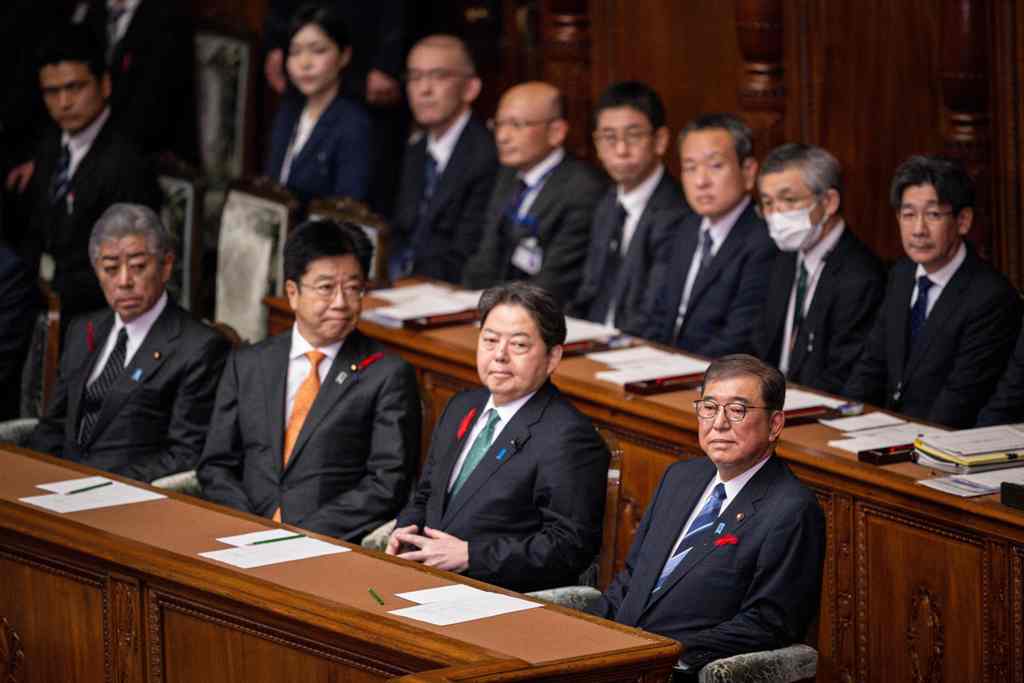
TOKYO (AFP) – Japanese Prime Minister Shigeru Ishiba dissolved parliament on Wednesday ahead of October 27 snap elections, banking on his honeymoon popularity and a fragmented opposition to lead his scandal-tainted party to victory.
Ishiba’s Liberal Democratic Party (LDP) has governed Japan almost uninterrupted for decades – albeit with frequent leader changes – and is almost certain to be re-elected.
But Ishiba, named prime minister just last week, wants to shore up his mandate to push through policies that include beefing up spending on defence as well as on poorer regions hit by Japan’s demographic crisis.
“We want to face this election fairly and sincerely, so as for this government to obtain (public) trust,” Ishiba told reporters on Wednesday.
Later the Speaker of Parliament read out a letter from the prime minister with the emperor’s seal, formally dissolving Parliament as lawmakers shouted the traditional rallying cry of banzai.
The three-year government of Ishiba’s predecessor Fumio Kishida suffered record-low approval ratings due to a slush fund scandal and voter discontent over rising prices.
Polls last week gave Ishiba’s cabinet approval ratings of 45-50 percent, compared with 20-30 percent for the Kishida administration’s final month.

Momentum
Ishiba’s backers hope the self-confessed defence “geek” and outspoken critic of the LDP establishment will boost the party’s popularity, including by persuading disillusioned young people to vote.
By dissolving parliament now, the 67-year-old wants to put his party to the test before his “honeymoon” period ends, said Yu Uchiyama, a political science professor at the University of Tokyo.
“It makes sense that he wanted to call a snap election as soon as the ‘face’ of the party changed, while the momentum is still there”, he told AFP.
Uchiyama added that Ishiba also wanted to catch opposition forces flat-footed, as the LDP’s foes remain undecided about how to coordinate with each other in the election.
But the prime minister’s decision to call a snap election this early was also criticised for contradicting his previous vows to prioritise facing the opposition in parliament.
Yoshihiko Noda, head of the Constitutional Democratic Party (CDP), said Ishiba’s “hastened” decision was to avoid being grilled over the slush fund scandal.
“This made me realise once again that even with the new prime minister, our politics will neither change nor be rectified,” Noda told broadcaster NHK.
Over the weekend, Ishiba announced that the LDP would not endorse some disgraced party members implicated in the scandal in the election.
The announcement reflected his desire to demonstrate to the public that he can be “strict”, and aimed at “restoring public trust in him a bit”, Uchiyama said.




